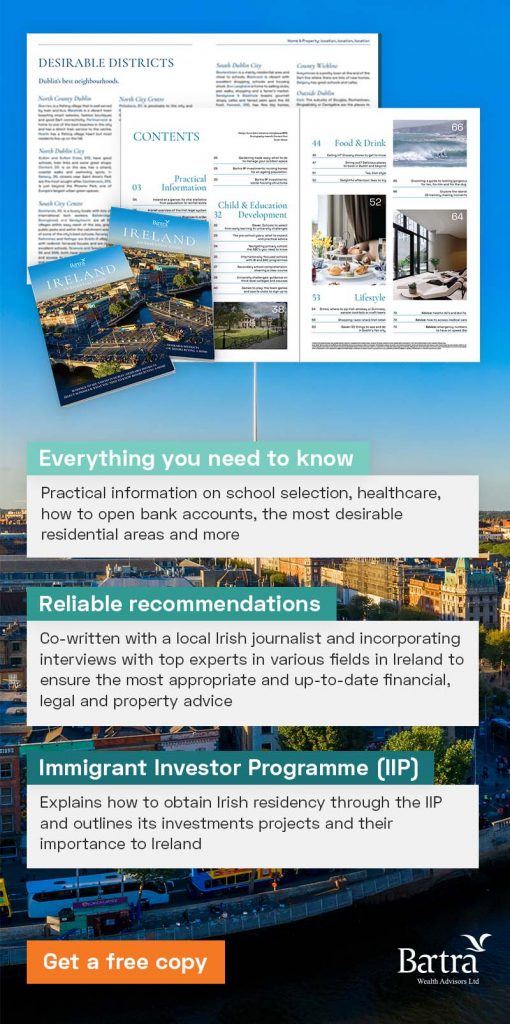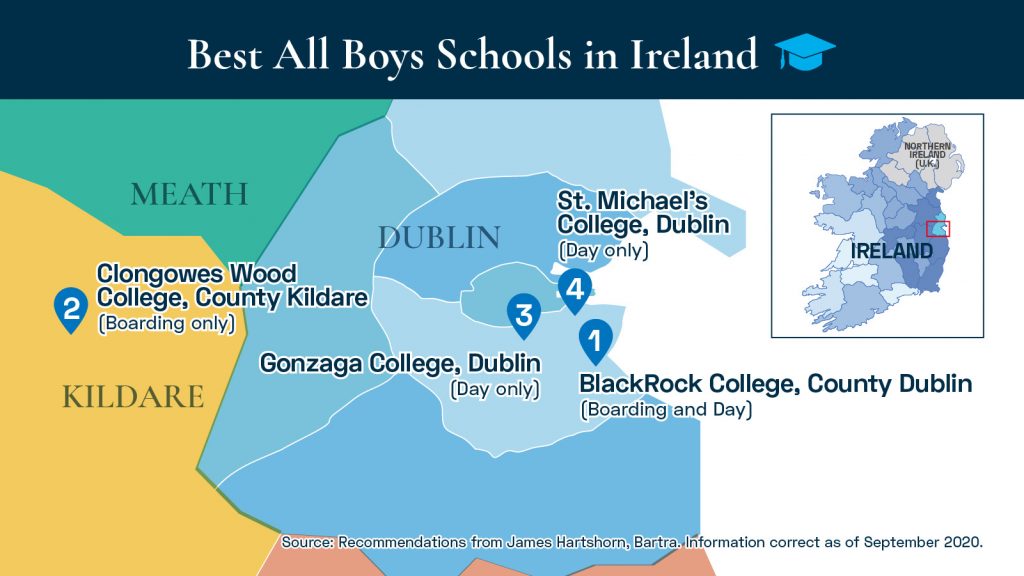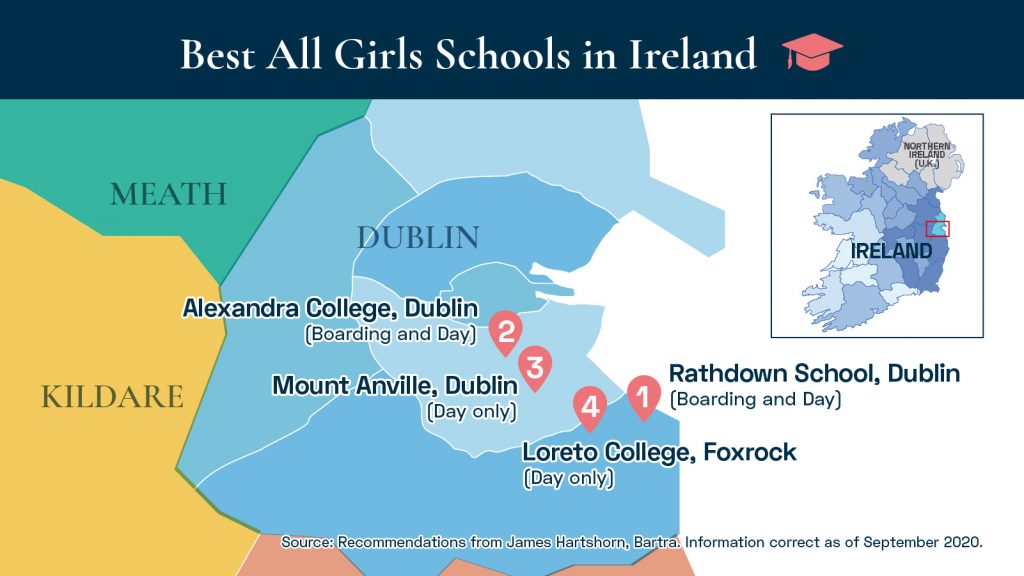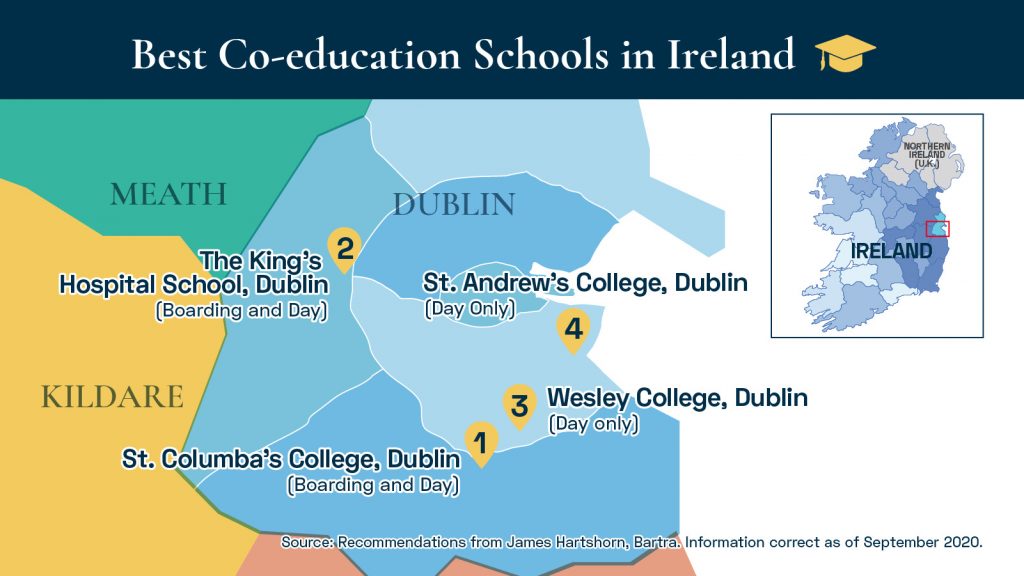Ireland offers a world-class education, whether you are looking to enrol students at a primary school level or have older children and are seeking out quality second- and third-level education solutions. We have previously introduced the Irish education system and its primary level schools, and the next stage of education is a similarly attractive proposition, particularly for those coming from Hong Kong.
Irish secondary and tertiary education
Ireland’s secondary education system spans six years, with students starting at the age of 12. The Leaving Certificate Examination is taken in Year 6 as entry to tertiary-level education. This is similar to both the United Kingdom and Hong Kong. Students can apply for tertiary education through UCAS in the UK and Non-JUPAS in Hong Kong, and vice versa.
It’s worth noting that in 2020, Chinese became a curricular subject and its first batch students will take the exam in June 2022. While Chinese is the most eye-catching new addition to the Leaving Certificate, students this year will also be sitting the first exams in Polish, Lithuanian and Portuguese as curricular languages. The three languages are now widely spoken in Ireland with Polish more widely spoken in Ireland than Irish.
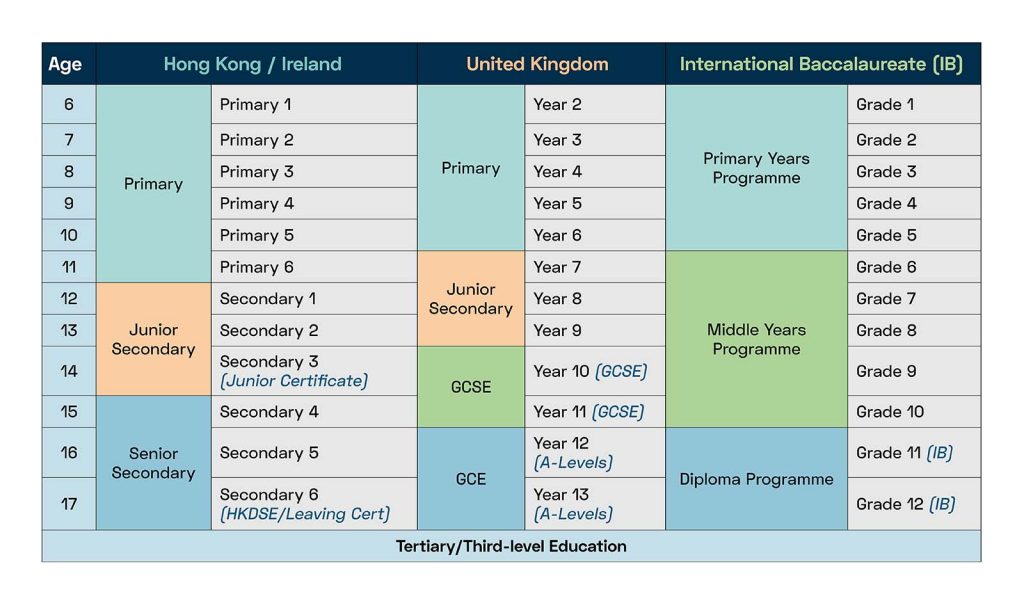

State-funded education is available at second- and third-level in Ireland. For secondary education, there is a large number of both public and private schools. According to the Department of Education, there were around 26,000 students enrolled in private secondary schools in the 2019/20 school year, with 51 out of Ireland’s 723 secondary schools classified as fee-paying institutions.
“Private schools are not as expensive as they are in either the UK, US or Asia. They are more affordable. The fact that we’re English-speaking, have a respected education reputation, with mainly small-size schools, are all key factors in Ireland’s favour,” says Ciara Shaffrey, of relocation service Settle In.
Two-thirds of Ireland’s private schools are located in Dublin. The largest mixed private school is St Andrew’s College in Booterstown, Co Dublin, while the largest all-girls private school is Mount Anville, in Goatstown, D14.


The library gallery of Trinity College Dublin, where the Book of Kells is kept. Trinity is regarded as one of the leading universities in Europe.
The third-level education sector in Ireland provides a full range of options. There are seven universities in Ireland. These include The National University of Ireland (NUI), which is the umbrella organisation of University College Dublin (UCD); National University of Ireland, Galway (NUI Galway); University College Cork (UCC); and Maynooth University; Trinity College Dublin; the University of Limerick (UL); and Dublin City University (DCU).
Additionally, there are five technological universities and two institutes of technology (ITs), which provide training in science, engineering and linguisitics to certificate, diploma and degree levels, and several colleges of education that provide specialised training for school teachers. A number of fee-paying, third-level educational institutions offer courses, mainly in professional vocational training and business.
Below are some popular subjects at Irish universities and the requirements:
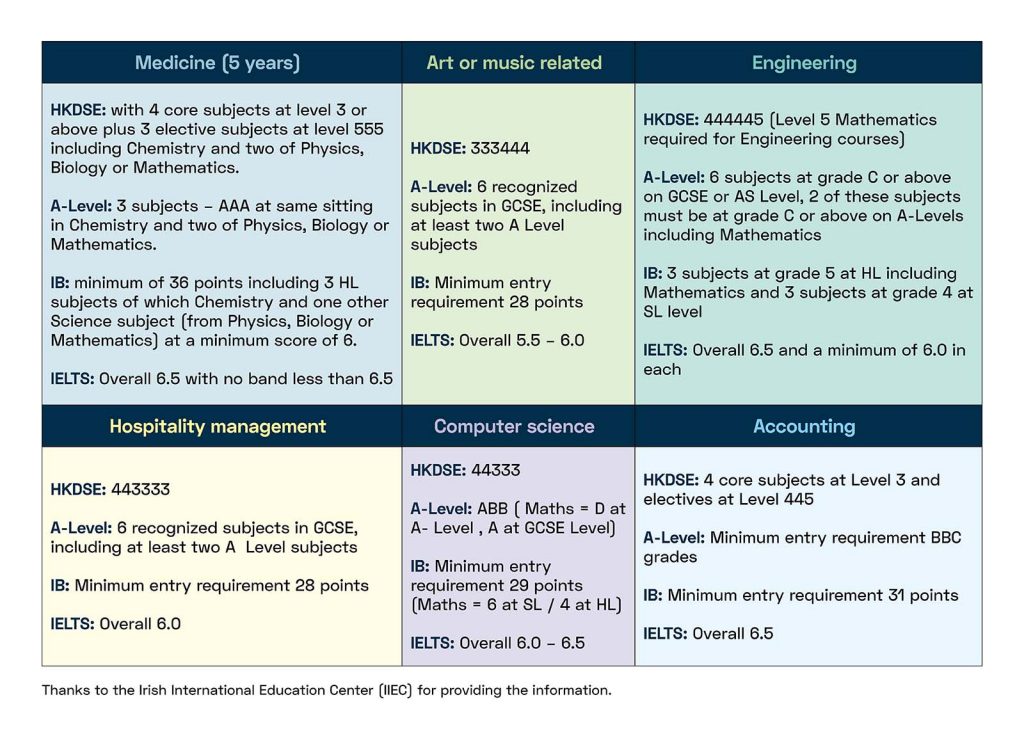

The benefits of an Irish education
Kam Chin is a Hong Kong-born immigrant who has lived in Ireland for more than 30 years. Formerly a primary school teacher in Hong Kong, after immigrating to Ireland, Kam opened a Chinese restaurant and founded a post-secondary school offering pathway courses leading to local universities. He is also the founder of the Irish Chinese Society of Galway, Ireland.
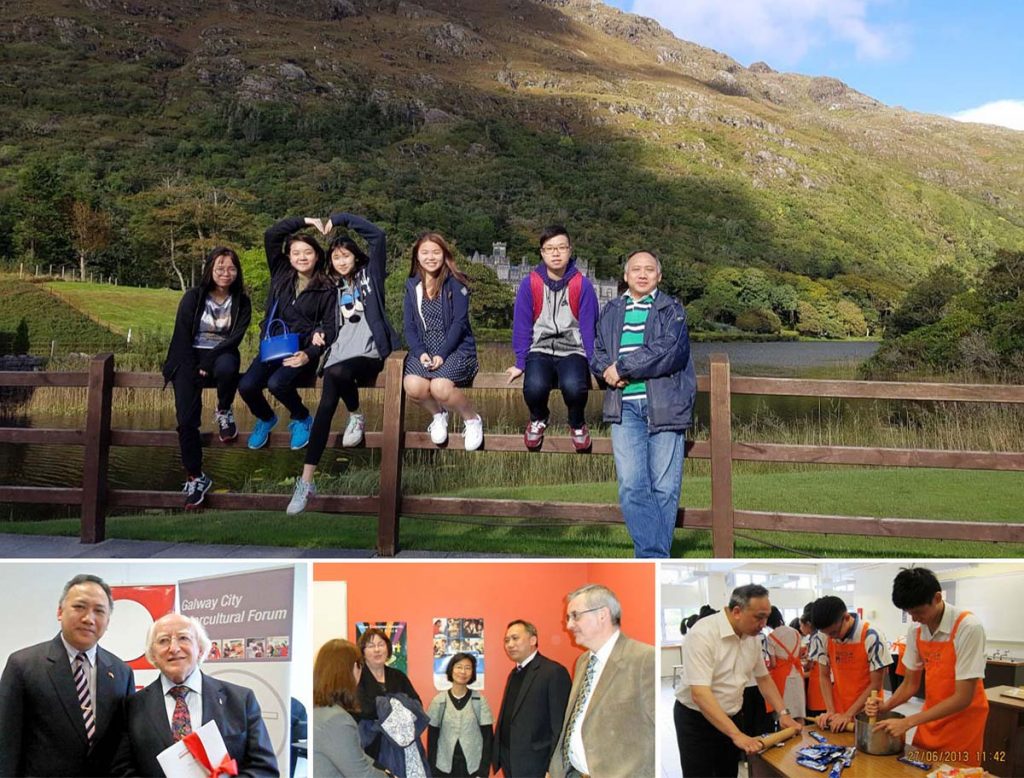

Kam’s son received his education in Ireland from primary school through to university, before obtaining a PhD from University College London. He currently works at a university in Denmark as a Postdoctoral Researcher.
“Unlike studying in Hong Kong, which puts pressure on both students and parents, the academic pressure on students over schoolwork and exams is comparatively much lower in Ireland. During my son’s secondary school, I had to run my business, so I could only take him to school occasionally and barely had time to look after his studies. But he handled his schoolwork well and he enjoyed his studies. In his senior secondary, he usually finished his homework in about an hour and then went rowing. As a foreign parent living in Ireland, I did not have parenting stress or worry about my son’s study,” says Kam. “In Ireland, universities have enough quotas for local secondary school leavers if the results from the Leaving Certificate are not too bad. Although entry to Trinity College or top universities cannot always be guaranteed, most students can enter tertiary education institutions. And all the schools in Ireland are good due to the strict guidelines and regulations from the government so parents and students do not have to ‘fight’ for the quotas of the top universities,” continues Kam, whose son went to the National University of Ireland, Galway, before moving to Sweden to attain a Master’s degree from KTH Royal Institute of Technology, one of the top schools in Europe, and then to UCL in London where he completed his doctoral degree.
“It is a huge benefit for children who hold a Stamp 4 or PR visa to study in Ireland as after remaining in Ireland for five years and obtaining their passports, they can pursue further studies in top schools in other EU countries. Their choices are not limited to only one country.”


When asked if he has to worry about his son financially, Kam replied, “he is very independent, I did not have to give him pocket money or to support him financially after he was 18. He had scholarships to cover his schooling in Sweden and the UK, and to pay his rent. Now my son is hired by the EU to work on research projects at a university in Demark. I think his current job is very well paid as he has already bought his own property.”
Kam is very glad that he made the choice to move to Ireland, as it allowed him to give his son a top education and access to the world, the tools his son needed to succeed.
The IIP for your family’s future success
The Irish Immigrant Investor Programme (IIP) is renowned as one of the best immigrant by investment programmes in Europe for its safety, fast approval and residing flexibility. Once an application is approved, residency can also be granted to the investor’s spouse, partner and/or children when certain criteria are met. Children can enjoy the benefits of high-quality education in Ireland, which paves the way to future success.
In Ireland, students who hold a Stamp 4 visa or PR, and study for five years, can apply for citizenship independently when they turn 18, which is unlike other developed English-speaking countries where children can only be granted citizenship after their parents qualify.
Additionally, IIP investors can avail a discount on their investment for any educational expenses that they intend to commit to in Ireland up to a maximum of €50,000. Some conditions apply:
- Investors may discount their approved investment with eligible education expenses that they commit to incur within the first five years after their permission has been granted.
- The education expenses must be for an Irish University or Institute of Technology.
- The expenses must be for the investor and/or their family member who has been accepted on an academic programme in one of the above educational institutions.
- The expenses must be indicated as part of the application process.
For more information about education in Ireland or other aspects of living in Ireland, contact us for a copy of our Ireland Guide.

